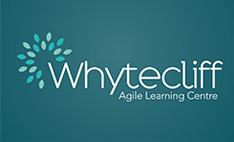Oppositional Defiant Disorder (ODD) is a childhood disorder characterized by disobedient, defiant, and hostile behavior directed at adults, and authority figures in particular. Other characteristics of ODD include a child displaying angry or irritable moods, vindictive behavior, and frequently being argumentative.
ODD can be difficult to diagnose as it is expected that a child will display oppositional behavior at certain stages in their development, making it difficult to distinguish whether a child is simply strong-willed or has Oppositional Defiant Disorder.
Like most childhood disorders, oppositional defiant disorder can vary in severity from mild to severe and will often cause different symptoms in boys and girls. While Whytecliff is not designed for children with extreme acting out behaviors we do accept some children with Oppositional Defiant Disorder (ODD) ⎯ where the child has a desire to change and grow, has some capacity for self-reflection and where they do not represent a risk or threat to other children.
How Whytecliff can Help Kids with Oppositional Defiant Disorder
Whytecliff offers the BC Ministry of Education accredited curriculum leading to a British Columbia Certificate of Graduation. Whytecliff also incorporates the new BC Curriculum’s intellectual, personal, and social-emotional proficiencies, with a special emphasis on youth development as well as positive mental health and wellness.
Unlike traditional schools, Whytecliff learning centres combine education with therapeutic science to create a positive and supportive high growth environment which pulls each child up to be their very best.
Whytecliff is highly successful with children with Oppositional Defiant Disorder for two main reasons:
First, we have a different starting place. For over 25 years we have employed a model of Positive Youth Development that is structured around an individually-tailored curriculum (which works from each child’s strengths, gifts, interests, talents, and passions). Our model emphasizes “self-paced” and “self-directed” learning that puts the individual child at the center of their learning experience. This approach maximizes personal control and choices, which we find decreases stress and avoids pushback from children with ODD. This approach is currently endorsed by, and also reflected in the new BC Ministry of Education Curriculum, “Building Student Success”.
Second, we offer a uniquely supportive community. For children with ODD we focus on building real relationships (based on an ethic of care, in which we care for children in the manner they want to be cared for, rather than how we think they should be cared for). As our staff become better attuned to each child’s emotional and practical needs, it paves the way for a working partnership or ‘therapeutic alliance’ to form. With that working partnership in place, we’re then able to understand each child’s readiness to learn and match them with the right challenges at the right time. As children begin to feel a sense of acceptance and belonging within a positive learning & therapeutic community, this in turn naturally encourages each program member to act as a good citizen within that community.
From our perspective, the goal is not to ‘curb’ or ‘contain’ behaviors but to build a sense of group cohesion and ignite a child’s natural curiosity (as these naturally diminish boredom-induced frustration and reduce acting out). The question becomes, how do we engage and harness a child’s authentic motivation, the kind that’s self-directed and leads to deeper learning? Once this motivation is engaged, together with a good personal relationship, ODD diminishes alongside the emergence of new, positive behavior patterns (as children naturally grow and change).
Overall, Whytecliff offers youth with Oppositional Defiant Disorder a chance to set aside anger and a fresh chance for them to make their best possible progress and become their best possible selves.
External Resource:
